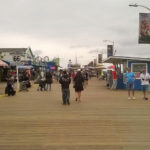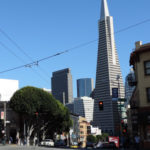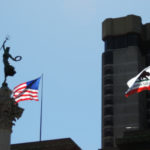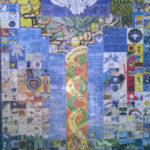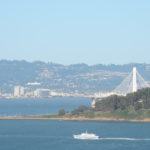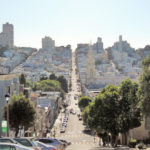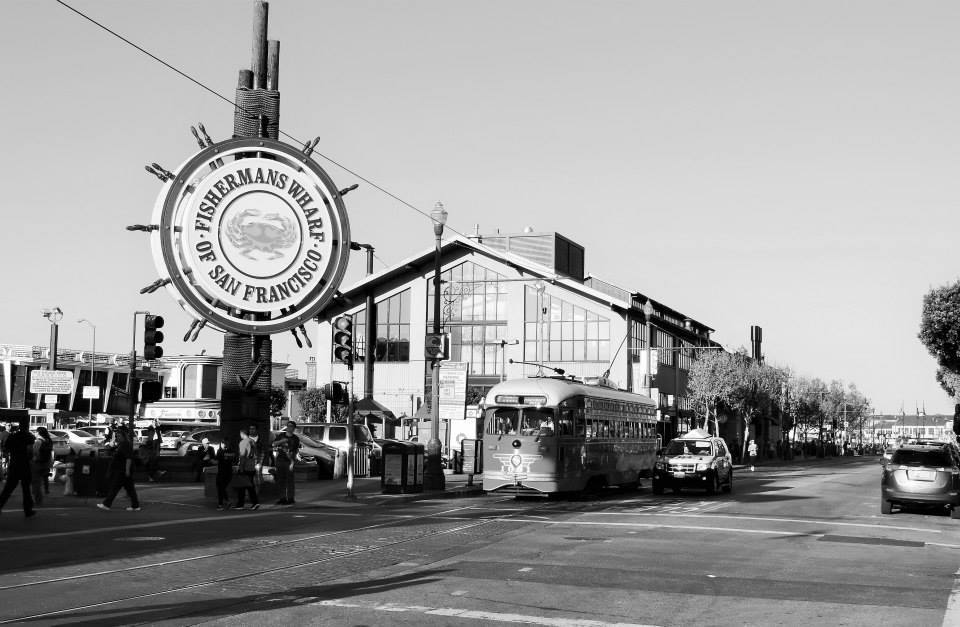
Matters of national security
(translated by Maria Grazia Patania)
Once we leave Lisboa we fly over the Atlantic Ocean to San Francisco. We make 2 stopovers –one in the Azores and one in Boston. After roughly 2 hours from our takeoff we land in Punta Delgada where we are asked to leave the plane. We take our belongings and we go to a waiting room till someone tells us to go back on board. During our short stopover (roughly one hour) we have to undergo security checks again and Stefano –stopped by the police- has to show them every single little thing in his backpack. Afterwards he joins me in a small bar inside the airport where I am chatting with a Portuguese woman who has been living in Boston for quite a long time. She tells me about her son and his wife who also experienced a journey around the world the year before but then had to stop because they will have a baby. Our boarding starts and we stand patiently in line. After landing in the USA, we grab our passports and visa requests which we had filled out through the ESTA (Electronic System for Travel Authorization): a program allowing those who come from eligible countries like Italy to apply for a visa.
The security check area is chaotic with its dozens of colourful tapes showing passengers the way. Violet, yellow and red tapes overlap while officers dressed in black divide people according to their nationality after a first electronic registration at some machines. We queue in the wrong line, a line devoted to gold Trusted Travelers who do not need to undergo any security check. The airport officers are unfriendly in telling us we are queuing in the wrong line and then they show us how to use those electric machines for a first passport check. In front of us there is a woman called Maria who does not understand how to use that machine to get an electronic ticket. The officer there -visibly annoyed- tells us in a broken Italian what to do and issues the ticket for her. Unfortunately Maria is Portuguese, despite her name. We go for our second step: a security check with the airport police. A police officer -called Kenneth, a thin Afro-American guy about 40 years old- questions us in a strict and uncomfortable way. He opens our passport and rudely puts them on his table. Then our examination starts while over our heads some videos show friendly police officers gently answering to some questions made by children. This is not our case with Mr Kenneth. He looks firmly into our eyes and makes easy questions such as „What is your name?“, „Why are you travelling to the USA?“ difficult to answer. The way he observes us makes us feel like criminals hiding an illicit traffic. Why have you been to Sudan? Tunisia and Morocco? We feel like in a movie and slowly start answering his questions. What´s my name? (well… Everyone calls us Stefano and Daniela) Friends? Who? No, not at all. When are we leaving? Maybe on the 22nd or the 23rd. But from where?
Sweaty and more nervous than at our high school final exam, we succeed our examination. Finally Mr Kenneth validates our passports and gives us a nasty look as if he meant „This time you´ve got it, but next…“. Luckily enough we´ve made it: a matter of national security. Now we need to find the gate for our connecting flight to San Francisco. We get lost following directions given to us by different travellers, but then we get there quite surprised. It is a relief. We would love to eat something, but everything is dam´ expensive and we only buy half liter water for 6$. We will have dinner on the plane, we hope. It is late evening now and we are on board of the flight that will fly us to San Francisco in 6 hours. Once on the plane we are delighted to see that we have a small tv screen in front of us and we pick up the movie we will see during the journey: Selma, about Martin Luther King. What we did not see was the small space intended for credit cards to buy meals and movies. Once we turn the screen off and forget how hungry we are, we can finally fall asleep to wake up when we are landing to San Francisco airport.





